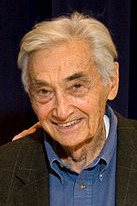
Aaron Swartz in January 2012
An earlier version of this commentary was published on Sunday at The Huffington Post.
The suicide of Internet activist Aaron Swartz has prompted a wave of revulsion directed at U.S. Attorney Carmen Ortiz, who was seeking to put him in prison for 35 years on charges that he illegally downloaded millions of academic articles.
Swartz, 26, who helped develop the RSS standard and was a co-founder of Reddit, was “driven to the edge by what a decent society would only call bullying,” wrote his friend and lawyer Lawrence Lessig. “I get wrong,” Lessig added. “But I also get proportionality. And if you don’t get both, you don’t deserve to have the power of the United States government behind you.”
By Monday morning, more than 11,000 people had signed an online petition asking President Obama to remove Ortiz. Swartz’s family released a statement that said in part: “Aaron’s death is not simply a personal tragedy. It is the product of a criminal justice system rife with intimidation and prosecutorial overreach.”
Ortiz’s vindictiveness toward Swartz may have seemed shocking given that even the victim of Swartz’s alleged offense — the academic publisher JSTOR — did not wish to press charges. But it was no surprise to those of us who have been observing Ortiz’s official conduct as the top federal prosecutor in Boston.
Last July I singled out Ortiz as the lead villain in the 2012 Muzzle Awards, an annual feature I’ve been writing for the Phoenix newspapers of Boston, Providence and Portland since 1998. The reason: her prosecution of Tarek Mehanna, a Boston-area pharmacist who had acted as a propagandist for Al Qaeda.
Mehanna was sentenced to prison for 17 years — not because of what he did, but because of what he said, wrote and translated. Though Mehanna had once unsuccessfully sought training at a jihadi terrorist camp in Yemen, the government’s case was based almost entirely on activities that were, or should have been, protected by the First Amendment.
Make no mistake: Mehanna’s propaganda was “brutal, disgusting and unambiguously supportive of Islamic insurgencies in Iraq, Afghanistan and Somalia,” Yale political scientist Andrew March wrote in The New York Times. But as March, the ACLU and others pointed out in defense of Mehanna, the more loathsome the speech, the more it deserves protection under the Constitution.
In addition to the prosecution of Tarek Mehanna and the persecution of Aaron Swartz, there is the matter of Sal DiMasi, a former speaker of the Massachusetts House who is now serving time in federal prison on political corruption charges brought by Ortiz.
Last June DiMasi revealed he had advanced tongue cancer — and he accused federal prison authorities of ignoring his pleas for medical care while he was shuttled back and forth to Boston so that he could be questioned about a patronage scandal Ortiz’s office was investigating. It would be a stretch to connect Ortiz directly with DiMasi’s health woes. She is, nevertheless, a key player in a system that could transform DiMasi’s prison sentence into a death sentence.
Notwithstanding the anger that has been unleashed at Ortiz following Aaron Swartz’s death, she should not be regarded as an anomaly. As the noted civil-liberties lawyer Harvey Silverglate pointed out in his 2009 book, “Three Felonies a Day: How the Feds Target the Innocent,” federal prosecutors have been given vague, broad powers that have led to outrages against justice across the country.
“Wrongful prosecution of innocent conduct that is twisted into a felony charge has wrecked many an innocent life and career,” wrote Silverglate, a friend and occasional collaborator. “Whole families have been devastated, as have myriad relationships and entire companies.”
Ortiz may now find that her willingness to use those vast powers against Swartz could have a harmful effect on her future.
As a Latina and as a tough law-and-order Democrat, she has been seen as a hot political property in Massachusetts. In 2011 The Boston Globe Magazine named her its “Bostonian of the Year.” She recently told the Boston Herald she was not interested in running for either the U.S. Senate or governor. But that doesn’t mean she couldn’t be persuaded. Now, though, she may be regarded as damaged goods.
Those who are mourning the death of Aaron Swartz should keep in mind that he had long struggled with depression. Blaming his suicide on Carmen Ortiz is unfair.
Nevertheless, the case she was pursuing against Swartz was wildly disproportionate, and illustrated much that is wrong with our system of justice. Nothing good can come from his death. But at the very least it should prompt consideration of why such brutality has become a routine part of the American system of justice.
Update: MIT, where Swartz allegedly downloaded the JSTOR articles, has announced an internal investigation, reports Evan Allen of The Boston Globe. Lauren Landry of BostInno has statements from MIT president Rafael Reif and from JSTOR.
Photo (cc) by Daniel J. Sieradski via Wikimedia Commons and published here under a Creative Commons license. Some rights reserved.



 Remember Section 215? It was a notorious provision of the
Remember Section 215? It was a notorious provision of the